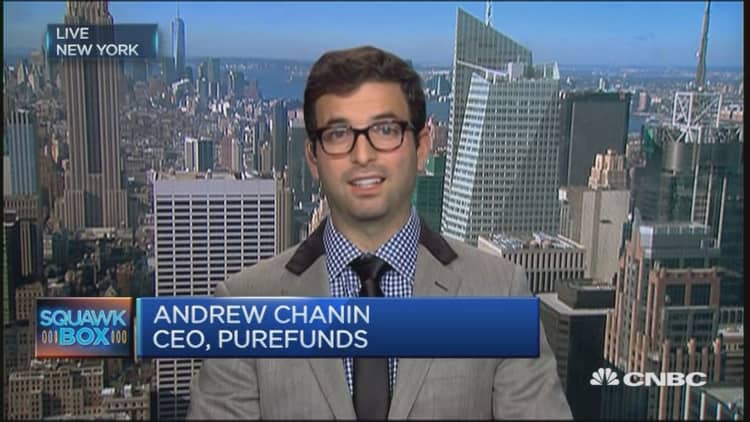The CEO of Ubisoft said he's confident the French videogame publisher will be able to fend off a move by Vivendi to obtain a seat on the company's board of directors. However, he says, the company is exploring other options – just in case it can't.
Vivendi, for the past eight months, has steadily been buying shares of Ubisoft – raising its stake to 17.7 percent. (The founders own just 9 percent of shares and hold 16 percent of the voting rights.) This comes on the heels of Vivendi's hostile takeover of Gameloft, a mobile game company that was founded by the same brothers.
"We have Plan A and Plan B," said Yves Guillemot, co-founder, chairman and CEO at Ubisoft. "Plan A is to remain independent. Plan B is going with another group, either in the game industry or with a technology or other types of company. Those are the two options at this point and they are both still open."
Discussions are underway with both potential investors, whom would back the Guillemots in their battle with the French media conglomerate's "creeping control" bid for the publisher, and with potential partner companies. Not surprisingly, Guillemot isn't willing to expand on that.
"We had good discussions with a certain number of partners, but we can't say more at the moment," he says. "In due time, we will announce things."
Vivendi sold its 85 percent stake in Activision-Blizzard in July 2013 for over $8 billion to reduce debt. Last October, though, it showed strong interest in returning to the gaming world, quickly buying up shares of Gameloft and Ubisoft over the objection of company officials. By adding these game studios, Vivendi hopes to become an even bigger force in the European media world. Guillemot, though, insists the two companies are incompatible.
He says he believes current investors will side with management, given the company's long-term projections – and recent financial performance. (Fourth quarter revenues were €10 million higher than analysts expected, based on the strong launch of "Tom Clancy's The Division".)
"We think our shareholders will have to choose between the two possibilities," he says. "With what we've delivered, we have a good chance that they vote for our strategy."
If they don't – and if the company can't deliver on either of its above-mentioned plans, there's another arrow in Guillemot's quiver: A talent drain. Ubisoft is regularly ranked high among video game companies to work for. And because its workforce is spread so wide globally, few employees are under long-term contracts.
Were Vivendi to take control, Guillemot says he would likely leave.
"It's difficult to say today, but for sure my goal is to take care of that company if I have the capacity to make things happen," he says. "When you are part of a group that doesn't have the same strategies as you … I don't think it will be viable for me to stay."
And he might not leave by himself, he hints.
Read MoreTop selling video games
"I think it would be very costly to go aggressively after Ubisoft," he said. "It's an industry where people move fast from one place to another, so they would have a big risk to lose some of the key talents."
He's hoping it doesn't come to that, of course. Ubisoft has, after all, been through something like this before.
In 2004, Electronic Arts attempted to purchase the company, buying a nearly 20 percent stake in Ubisoft in what Guillemot dubbed a "hostile" act. The deal never happened – and EA sold off its stake by 2010.
This time, though, says Guillemot, it's a much different threat.

"EA was a company from the same industry," he says. "Here's it's a completely different company, which is older in mindset. … [EA] knew what business we were doing … and they understood the industry well. Here we have a media company that doesn't know the business."
And, as Vivendi showed with Gameloft, it's seemingly much more tenacious.
The takeover of the mobile game studio came, in some ways, fairly sudden. While Vivendi had been buying up shares, few expected it to buy the company outright – including the Guillemots.
"At first we thought they would do a creeping control but … because the company was not very expensive, they showed they could change strategy," says Guillemot. "We were a little but surprised, because we had 29 percent of the voting rights and a certain number of shareholder that would have voted for the group managing that. … At €6 [per share] we thought it was pretty safe. At €7.2 we had a pretty good chance to keep the company. But at €8 it became impossible."

